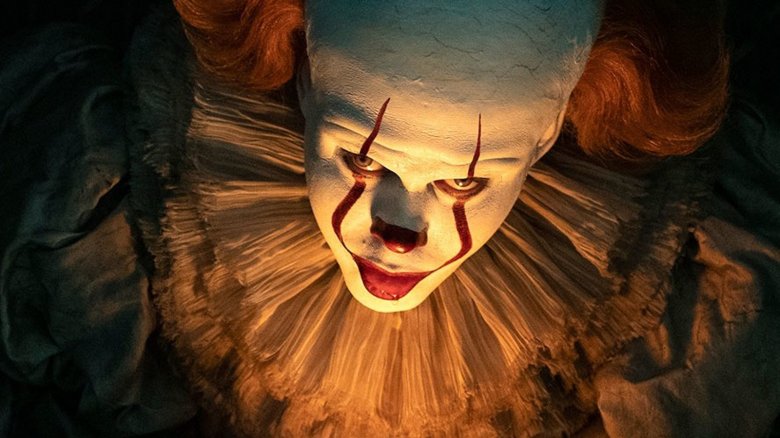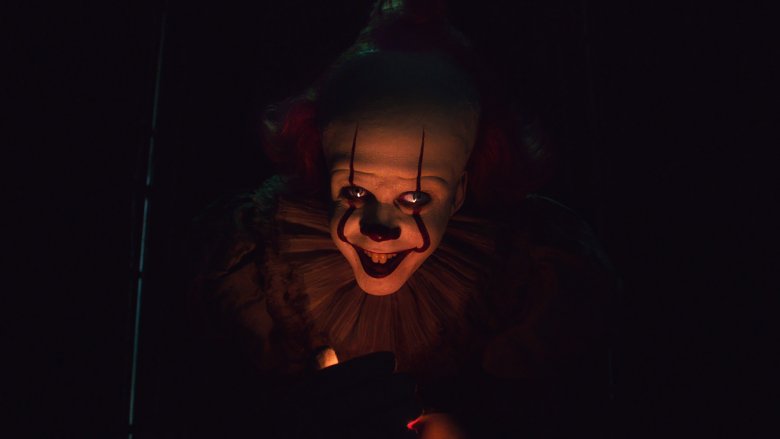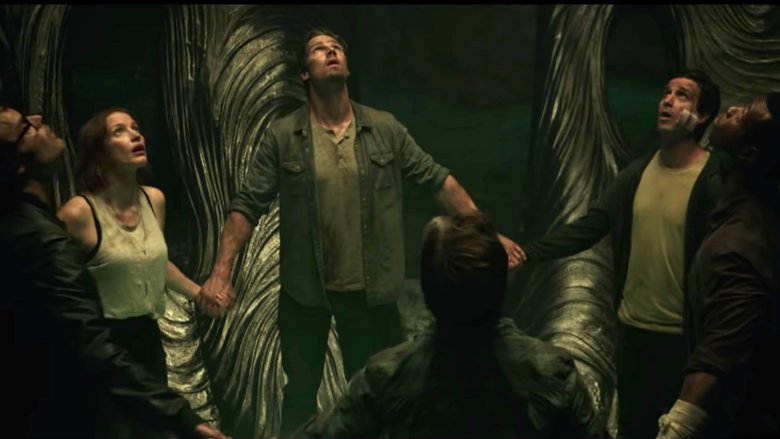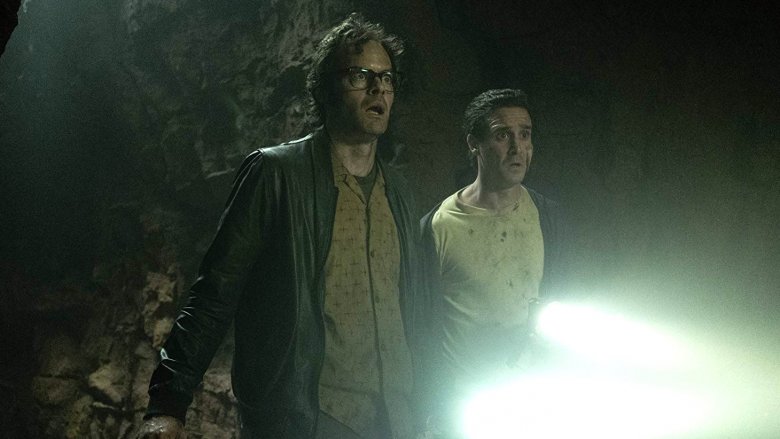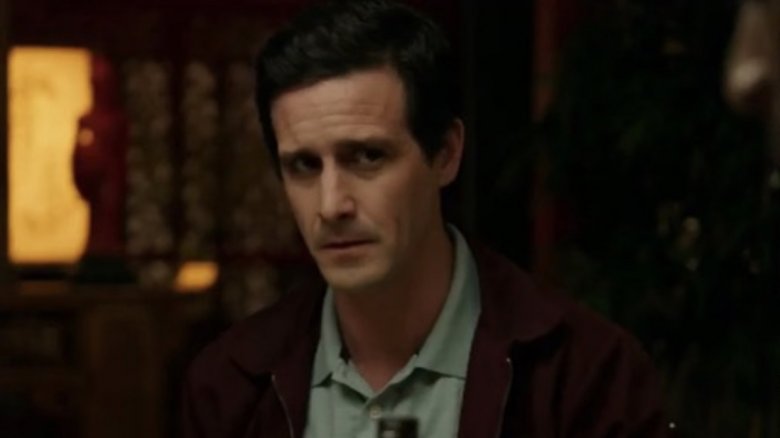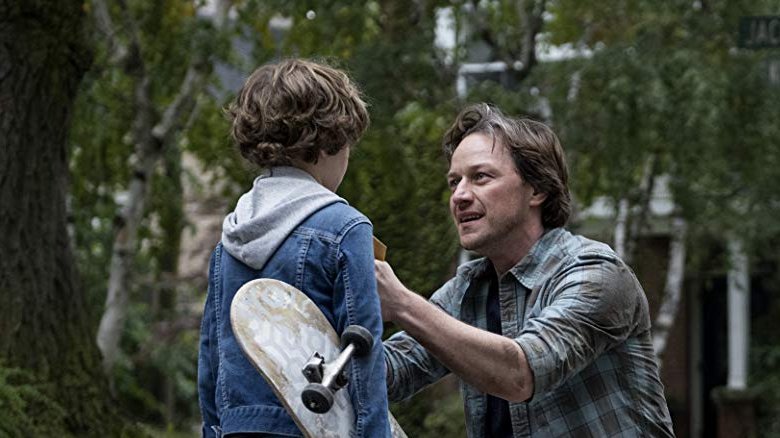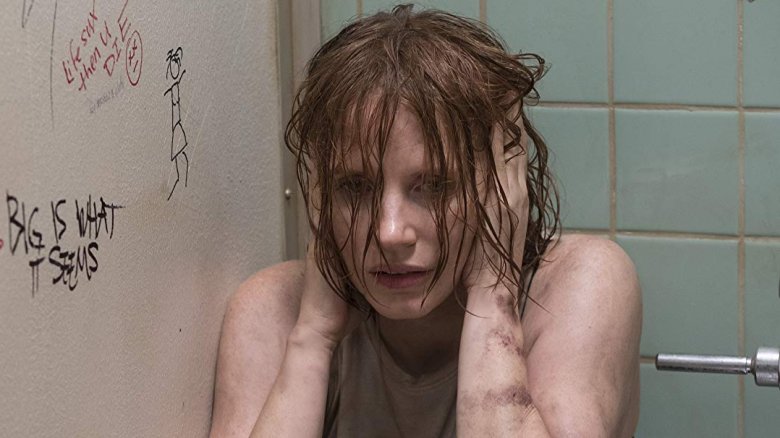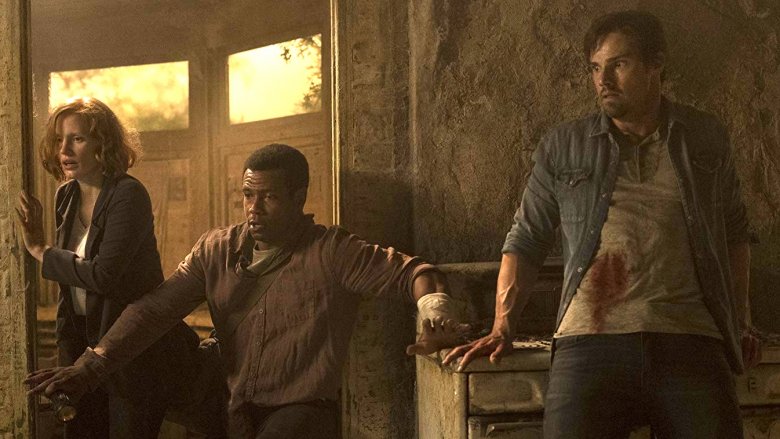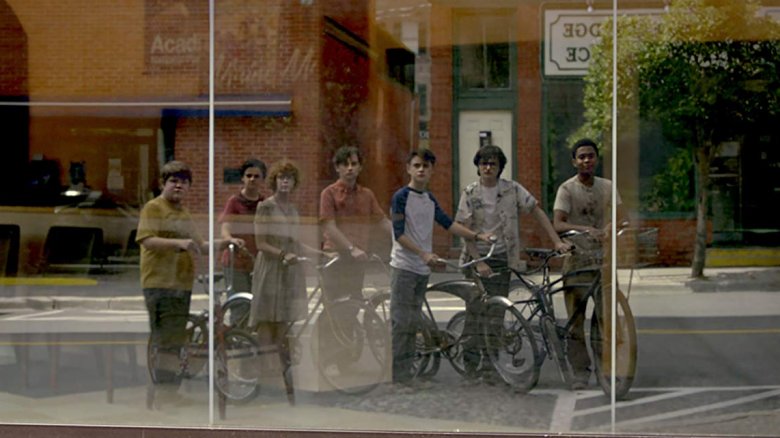The Ending Of It: Chapter Two Explained
If you've at least seen the trailers for It: Chapter Two, then you know that the movie follows the grown-up members of the first film's Losers Club as they are once again forced to confront the shapeshifting, clown-aping, child-eating terror that they faced down in their youth, all the way back in 1989.
There's a lot riding on this second chapter, narratively speaking. It's the end of an epic story that spans 27 years and reaches back to the dawn of the cosmos, and it has to provide answers to mysteries as big as the nature of an ageless horror while wrapping up deeply personal character arcs. So how well does the movie manage to strike a balance between these elements — all while trying to satisfactorily adapt the classic Stephen King bestseller that inspired it — during its nearly three-hour runtime? Let's roll up our sleeves, wade into the sewers and dig into the details of how the saga ends. This is the ending of It: Chapter Two explained.
And before you open the door labeled "very scary," be warned: Spoilers await you.
Deadlights
Stephen King's novel It isn't just the story of a scary clown terrorizing some kids and then returning to do it all over again when they're adults who forgot about the monster. There's a whole story-specific cosmology to the saga, which includes a giant, godlike turtle that coughed up the known universe when it had a tummy ache. No, really. That's what happens. Aside from a few subtle nods here and there, the movies mostly sidestep the ancient, interdimensional mythology of the book, but one element does show up in It: Chapter Two — the true form of It.
When he goes to visit the Shokopiwah tribe and takes one of their vision-granting concoctions, Mike (Isaiah Mustafa) learns that It came to Earth in a meteor strike that left a crater in Derry, and is made up of "Deadlights," mostly orange but sometimes-blue spheres of light of immense power. Though the lights can be seen in brief moments in the first film, It appears entirely as deadlights as Chapter Two reaches its climax, and even after taking on other forms, the deadlights are still visibly powering the creature, becoming increasingly weaker as the Losers literally bring It down to size.
The Ritual of Chüd
It's true form is revealed because the Losers perform the Ritual of Chüd, a Shokopiwah ceremony that differs pretty wildly in the movie from the way it works in the book. The movie's take on the ritual involves each member of the club burning a "token" of his or her childhood and reciting a chant to make the Deadlights turn dark, then trapping the Deadlights inside a pyramid-shaped artifact Mike stole.
The ritual is the key to defeating It in the book, though it takes two tries 27 years apart. But the Losers' attempt essentially fails in the movie, at least at first. That's because it's revealed Mike lied to everyone in an attempt to simply bring them all back together. The ritual wasn't successful before when the Shokopiwah tried to do it, and it doesn't kill It when the Losers try it this time, either. At least... not until they've gone through the wringer just a little bit more so they can truly overcome the fears that feed It.
Childhood fears, adult anxieties
Richie Tozier isn't exactly a tough nut to crack. His stated childhood fear is clowns — which is, you know, the form It typically takes. His token for the Ritual of Chüd is a literal token from the local arcade. And, as is so often the case in the transition from childhood to adulthood, his fear has morphed into anxiety. The adult Richie (Bill Hader) throws up twice in It: Chapter Two and threatens to leave Derry several times because he just can't stand the idea of losing what he's gained as a famous stand-up comedian.
Richie spends the first half of Chapter Two mercilessly needling Eddie Kaspbrak (James Ransone), and he doesn't hesitate to call Stanley Uris the weakest of the Losers when he finds out about Stanley killing himself. He can be mean, and has a hard time expressing his real feelings. It isn't until he learns to care about someone other than himself that things turn around for him. It takes Richie visiting the synagogue where Stanley had a disastrous bar mitzvah, and more significantly, coming to openly care about the well-being of his closest friend Eddie, whom he finally can admit he loves, to overcome his self-absorption and play a part in defeating It.
The hypochondriac cuts loose
For Eddie's part, the fear he has to overcome is also a sort of self-obsession. His hypochondria and fear of bodily harm are paralyzing. They hamper him from taking action both as a child and as an adult, like when he's confronted with Stanley's bug-like severed head or trying to rescue his mother from the diseased leper he keeps seeing It as.
It isn't until he gives up one of his "gazebos" — his preteen mispronunciation of "placebo" — in the form of his inhaler and comes to believe in the monster-killing power of a makeshift spear fashioned from a metal fencepost that he can work up the courage to mount a full frontal attack on It, weakening the monster before the rest of the Losers can deal their final psychological blows. Eddie is fatally impaled the process, but in the service of saving his friends. After a lifetime of being frozen with fear, his final act is one of bravery, and he seems justifiably proud of himself.
Brotherly baggage
Even nearly 30 years after his brother Georgie's death, Bill Denbrough (James McAvoy) is still plagued by guilt and feelings of responsibility. He finds himself shouting down a storm drain just like he did in his youth, and he conveniently gets Georgie's paper boat back from Pennywise (Bill Skarsgård) to use as his token in the ritual. He fears not being able to save the people around him. Eventually he tries — and fails — to save another young Derry boy from suffering a fate similar to Georgie's at the end of Pennywise's teeth.
It takes a full-on envisioned confrontation with his younger self (who is himself talking to a vision of Georgie) during the final showdown with It for Bill to come to terms with what happened, and absolve himself of blame, telling himself that he was, in fact, a good older brother. With that resolved, he can help destroy It... and maybe finally write a decent ending to his next novel.
Home at last
Though Ben (Jay Ryan) has grown from a chubby, bullied kid into a handsome, successful man, he still clearly feels ostracized. He notably keeps himself at a remove from his co-workers at his architecture firm, videoconferencing in from his massive, empty house. Meanwhile, Beverly (Jessica Chastain) is in an abusive marriage that mirrors her relationship with her father. When she returns to her childhood home, it's unfamiliar and inhabited by a woman who turns into a rampaging, unclothed monster. Nowhere really feels like home to her.
After some amnesia-based uncertainty about who really loved whom on Beverly's part, Beverly and Ben finally find the linchpins to working through their fears: each other. Beverly brings the postcard with the poem Ben wrote for her to the Ritual of Chüd, and Ben brings the yearbook page Bev (and no one else) signed. As Ben is made to think he's being buried alive in the Losers' secret hideout and Bev finds herself drowning in blood in the bathroom stall where she was tormented by bullies, they reach out to each other and break free of It's spell.
The end of obsession
Much like his parents found themselves trapped as a raging fire killed them, Mike has trapped himself in Derry while everyone else left and forgot all about what happened there in 1989. He has appointed himself the chronicler and expert on all things It, convening with the Shokopiwah in hopes of unleashing ancient secrets in time for the returning Losers to defeat the creature.
And it works — just not the way he originally suspected. More than the Ritual of Chüd, one little proverb about living things having to abide by the rules of the shape they inhabit ends up being the key to taking down Pennywise. When Mike remembers that detail, he encourages all the other Losers to bring the monster down to size with their words, calling It little more than a clown. Their name-calling does the trick, shrinking Pennywise down so small that they can easily pull out his still-beating heart and destroy it. Mike thrives as someone who calls his friends to action, as signified by he way he brings a rock Beverly threw at Henry Bowers as his token.
Scars of the past
A major difference from the book's ending is that all the movie Losers leave Derry with the memories of their encounter with It intact — but to everyone's surprise, without the literal scars from when they cut their hands at the end of the first movie. They've disappeared. Bill writes a book that's very similar to Stephen King's It. Ben and Beverly go on boat excursions together, having finally found true companionship. Richie finishes carving his and Eddie's initials into a fence, finally revealing how much he cares. Mike leaves town at last.
And everyone receives a letter from Stanley, written before he killed himself. In it, Stanley gives a rationale for his suicide: Not to escape facing down It, but to prevent his friends from dying because he wasn't sure he could take another round with the creature, and he knew if the Losers weren't unified, they'd all die. When the adult losers look in a shop window and see the reflections of their younger selves, Stanley's there. "Once a Loser, always a Loser."
